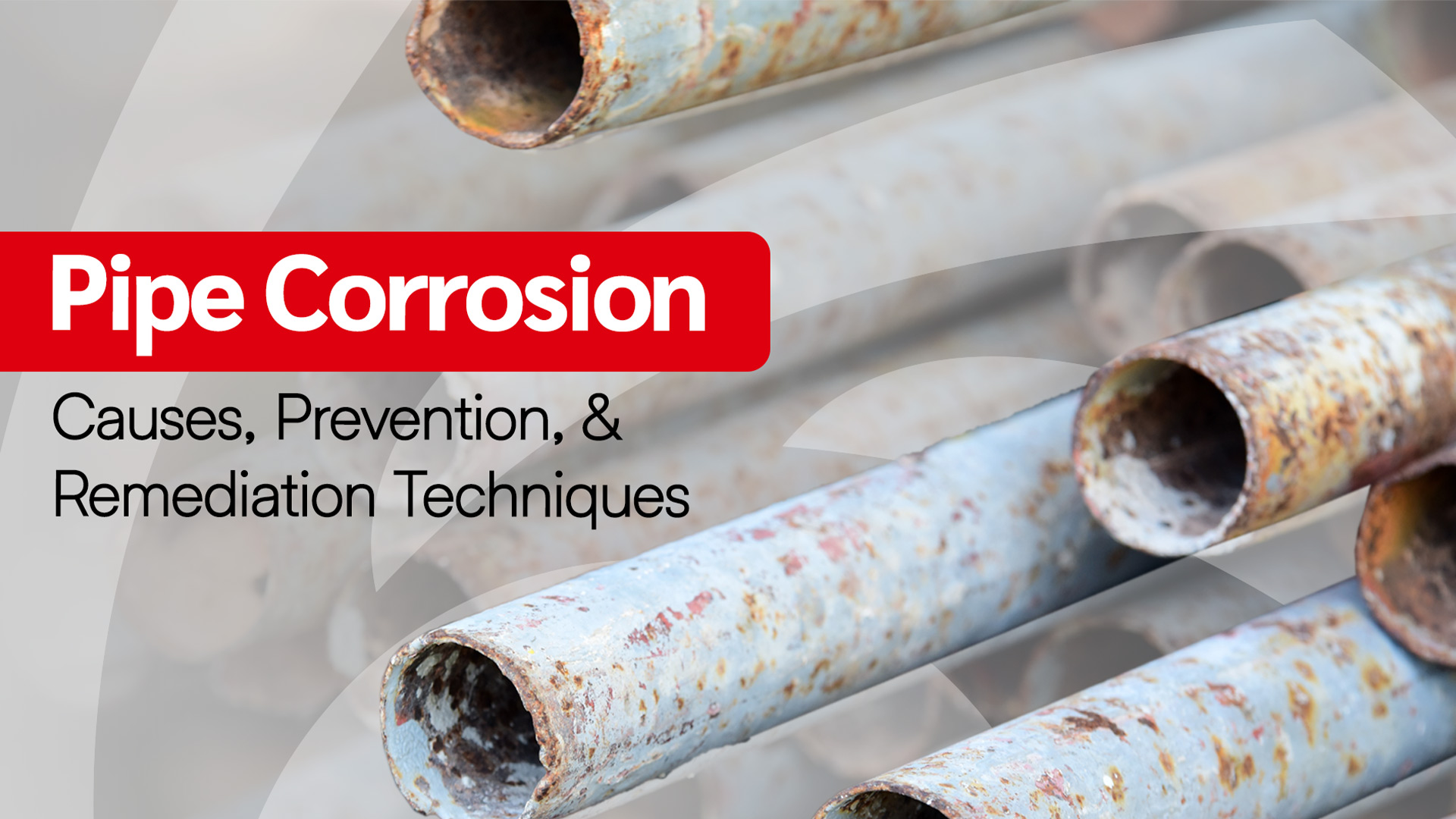
Pipe Corrosion: Causes,Prevention,and Remediation Techniques
20-06-2024
Pipe corrosion is a significant issue in India, affecting various industries including water supply, oil and gas, and chemical processing. It leads to leaks, contamination, and infrastructure damage, resulting in economic losses and health hazards.
Causes of Pipe Corrosion
-
Chemical Reactions: Corrosion often results from chemical reactions between the pipe material and substances in the environment. For instance, water containing high levels of dissolved oxygen, salts, or acids can accelerate corrosion.
-
Electrochemical Processes: Galvanic corrosion occurs when two different metals are in electrical contact in a corrosive electrolyte, causing one metal to corrode faster than the other.
-
Microbiologically Influenced Corrosion (MIC): Certain bacteria can induce corrosion by creating biofilms and producing corrosive substances like hydrogen sulfide.
-
Environmental Factors: Humidity, temperature, and soil conditions can significantly impact the rate of corrosion. In India, coastal areas experience higher corrosion rates due to salty air and high humidity.
Prevention Techniques
-
Material Selection: Using corrosion-resistant materials such as stainless steel, PVC, or HDPE can greatly reduce the risk of corrosion.
-
Protective Coatings: Applying epoxy, polyurethane, or other protective coatings can shield pipes from corrosive substances.
-
Cathodic Protection: This technique involves using sacrificial anodes or impressed current systems to protect metal pipes from galvanic corrosion.
-
Water Treatment: Adjusting the chemical composition of water, such as pH control and adding corrosion inhibitors, can minimize corrosive effects.
Remediation Techniques
-
Pipe Replacement: Severely corroded pipes should be replaced with new, corrosion-resistant materials.
-
Pipe Lining: Inserting a liner, such as a cured-in-place pipe (CIPP), can restore the integrity of a damaged pipe without the need for a full replacement.
-
Chemical Treatments: Applying chemical inhibitors can help manage corrosion in operational pipelines.
-
Electrochemical Methods: Techniques like electroplating and anodizing can repair and protect metal surfaces.
A study by the Central Water Commission of India highlighted that nearly 30% of urban water supply systems experience significant water loss due to pipe corrosion and leaks. The Indian Oil Corporation reported that corrosion-related issues in their pipelines have led to substantial maintenance costs, emphasizing the need for improved corrosion management practices.
Conclusion
Addressing pipe corrosion is crucial for maintaining the integrity of infrastructure in India. By implementing effective prevention and remediation techniques, the longevity and reliability of pipelines can be significantly enhanced. Aqua Group, with its successful range of water pumps and motors, plays a vital role in ensuring the efficient and uninterrupted supply of water, further contributing to the mitigation of corrosion-related issues. Our innovative solutions are tailored to meet the diverse needs of the Indian market, promoting sustainable water management practices.
